The legal status of polygamy varies widely around the world. Polygyny is legal in 58 out of nearly 200 sovereign states, the vast majority of them being Muslim-majority countries. Some countries that permit polygamy have restrictions, such as requiring the first wife to give her consent.
In countries that ban polygamy, the offence is commonly called bigamy, though the penalty varies between jurisdictions. In some countries where polygamy is illegal, the prohibition is not enforced.
Countries that recognize polygamous marriages
Africa
 Algeria[1]
Algeria[1] Cameroon[2]
Cameroon[2] Chad[3]
Chad[3] Central African Republic[4]
Central African Republic[4] Republic of the Congo[5]
Republic of the Congo[5] Djibouti[6]
Djibouti[6] Egypt[7]
Egypt[7] Eswatini[8]
Eswatini[8] Gabon:[9] Both men and women can join in polygamous marriage with the other gender under Gabonese law. In practice, the right to multiple spouses is reserved for men only.[10]
Gabon:[9] Both men and women can join in polygamous marriage with the other gender under Gabonese law. In practice, the right to multiple spouses is reserved for men only.[10]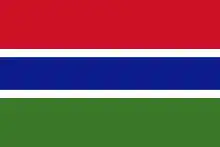 The Gambia[11]
The Gambia[11] Guinea[12]
Guinea[12]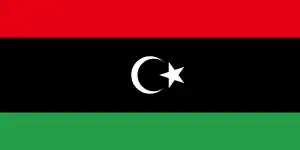 Libya[13][14][15]
Libya[13][14][15]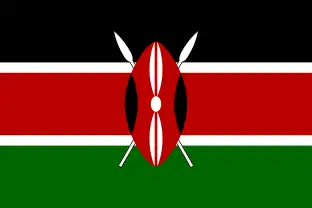 Kenya: Polygyny legal under legislation passed in 2014.[16]
Kenya: Polygyny legal under legislation passed in 2014.[16] Mali[17]
Mali[17]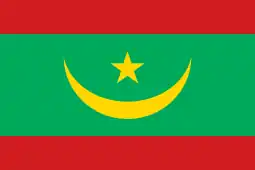 Mauritania[18]
Mauritania[18] Morocco[19]
Morocco[19] Nigeria (only in some states)[20]
Nigeria (only in some states)[20] São Tomé and Príncipe[21]
São Tomé and Príncipe[21] Senegal[22]
Senegal[22] Somalia[23]
Somalia[23] Somaliland[24]
Somaliland[24]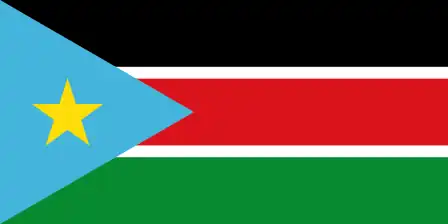 South Sudan[25]
South Sudan[25] South Africa is recognized for customary marriages. The Supreme Court also ruled that Muslim marriages performed under Sharia law are valid.[26][27][28]
South Africa is recognized for customary marriages. The Supreme Court also ruled that Muslim marriages performed under Sharia law are valid.[26][27][28] Sudan[29]
Sudan[29] Togo[30]
Togo[30]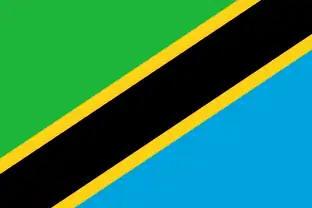 Tanzania[31]
Tanzania[31] Uganda[32]
Uganda[32]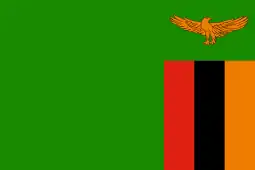 Zambia[33]
Zambia[33]
Asia
 Afghanistan[34]
Afghanistan[34] Bahrain[35]
Bahrain[35] Bangladesh[36]
Bangladesh[36] Bhutan[37][38]
Bhutan[37][38] Brunei[39]
Brunei[39] Indonesia (except for in the provinces of Maluku, North Maluku, Papua, and West Papua) [40]
Indonesia (except for in the provinces of Maluku, North Maluku, Papua, and West Papua) [40] Iran[41]
Iran[41] Iraq (except for in Iraqi Kurdistan)[42]
Iraq (except for in Iraqi Kurdistan)[42] Jordan[43]
Jordan[43] Kuwait[44]
Kuwait[44] Maldives[45]
Maldives[45] Oman[46]
Oman[46] Qatar[47]
Qatar[47] Palestine[48]
Palestine[48] Saudi Arabia[49]
Saudi Arabia[49] Syria (except in Syrian Kurdistan)[50]
Syria (except in Syrian Kurdistan)[50] United Arab Emirates[51]
United Arab Emirates[51] Yemen[52]
Yemen[52]
Oceania
 Solomon Islands[53]
Solomon Islands[53]
Countries that only recognize polygamous marriages for Muslims
Note: These countries are included separately because they have specific legislation aimed only at Muslims.
Asia
Countries that only recognize polygamous marriages under customary law
Africa
Countries that do not recognize polygamous marriages
Africa
Polygamy is more widespread in Africa than in any other continent, being most common in a region known as the "polygamy belt" in West Africa and Central Africa, with the countries estimated to have the highest polygamy prevalence in the world being Burkina Faso, Mali, Gambia, Niger and Nigeria.[69] In the region of sub-Saharan Africa, polygyny is common and deeply rooted in the culture, with 11% of the population of sub-Saharan Africa living in such marriages (25% of the Muslim population and 3% of the Christian population, as of 2019).[70] Polygamous marriages occur, regardless of legality, as the practice is deeply rooted in culture and often supported by Islam in Africa.
 Angola[71]
Angola[71] Benin[72]
Benin[72] Burkina Faso[73]
Burkina Faso[73] Burundi[74]
Burundi[74] Cabo Verde[75]
Cabo Verde[75] Democratic Republic of the Congo[76]
Democratic Republic of the Congo[76] Côte d'Ivoire: Polygamy may be punishable by six months to three years imprisonment, or a fine of CFA 50,000 to CFA 500,000 (US$80 to US$800).[77]
Côte d'Ivoire: Polygamy may be punishable by six months to three years imprisonment, or a fine of CFA 50,000 to CFA 500,000 (US$80 to US$800).[77] Eritrea: Illegal since 1977, after 2015 polygamy is punishable with "a definite term of imprisonment of not less than 6 months and not more than 12 months, or a fine of 20,001 – 50,000 Nakfas."[78]
Eritrea: Illegal since 1977, after 2015 polygamy is punishable with "a definite term of imprisonment of not less than 6 months and not more than 12 months, or a fine of 20,001 – 50,000 Nakfas."[78] Equatorial Guinea[79][80][81]
Equatorial Guinea[79][80][81] Ghana[82][83]
Ghana[82][83] Ethiopia[84][85]
Ethiopia[84][85] Madagascar[86]
Madagascar[86] Mauritius
Mauritius.svg.png.webp) Mayotte (French territory) (not criminalized): Considered to be de facto illegal since a referendum sponsored by France in March 2009, forcing the island to comply with the French laws.[87][88] However, pre-existing Muslim marriages are currently still valid.
Mayotte (French territory) (not criminalized): Considered to be de facto illegal since a referendum sponsored by France in March 2009, forcing the island to comply with the French laws.[87][88] However, pre-existing Muslim marriages are currently still valid.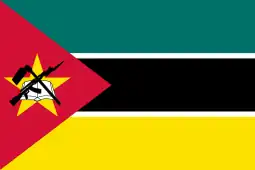 Mozambique[89]
Mozambique[89] Rwanda[90]
Rwanda[90] Seychelles
Seychelles Tunisia, where it has been banned since 1956[91]
Tunisia, where it has been banned since 1956[91]
Americas
 Antigua and Barbuda
Antigua and Barbuda Argentina
Argentina Bahamas
Bahamas Barbados
Barbados Belize
Belize.svg.png.webp) Bolivia
Bolivia Brazil: Bigamy is illegal. The marriage of a single individual to more than one other person is prohibited by law as bigamy, which is punishable by two to six years of imprisonment,[92] and is valid for every Brazilian citizen, including naturalized ones. De facto polygamy is not outlawed.
Brazil: Bigamy is illegal. The marriage of a single individual to more than one other person is prohibited by law as bigamy, which is punishable by two to six years of imprisonment,[92] and is valid for every Brazilian citizen, including naturalized ones. De facto polygamy is not outlawed..svg.png.webp) Canada: All forms of polygamy, and some informal multiple sexual relationships, are illegal under section 293 of the Criminal Code.[93] Bigamy is banned by section 290.[94] However, as of January 2009, no person has been successfully prosecuted, i.e. convicted, in over sixty years.[95] In 2009, two acquittals on polygamy charges, arising out of the town of Bountiful, British Columbia, prompted the government of British Columbia to pose a reference question to the Supreme Court of British Columbia (i.e., the superior trial court). The reference questions asked if the criminalisation of polygamy was consistent with the Canadian Charter of Rights and Freedoms; and, if so, under what circumstances could people be legally punished for polygamy.[96] In November 2011 the court released its 335-page long decision, which was that the criminal offence of polygamy is indeed constitutional, but that it should not be used to prosecute minors for having taken part in a polygamous marriage.[97] Chief Justice Robert J. Bauman conceded that there is a conflict between this law and some civil rights principles, but stated that there are other and "more important" issues which in this case take precedence. He wrote (as quoted by CBC News[97]): "I have concluded that this case is essentially about harm. More specifically, Parliament's reasoned apprehension of harm arising out of the practice of polygamy. This includes harm to women, to children, to society and the institution of monogamous marriage." Bauman argued that there are cases where the "wives" (who may be rather young; sometimes as young as 12 years) are abducted and abused, but because they believe in faith-promoting polygamy, they are not willing to bring complaints to the authorities. He reasoned that these offences sometimes may be stopped by applying anti-polygamy legislation. The decision was welcomed by the Attorney General of British Columbia, and by a representative for the group Stop Polygamy in Canada. Likewise, according to CBC News,[97] some polyamorous groups in Canada expressed their relief since Bauman had stated that the law shouldn't apply to them unless they decide to formalize their unions. Women's rights were central to the decision.[97]
Canada: All forms of polygamy, and some informal multiple sexual relationships, are illegal under section 293 of the Criminal Code.[93] Bigamy is banned by section 290.[94] However, as of January 2009, no person has been successfully prosecuted, i.e. convicted, in over sixty years.[95] In 2009, two acquittals on polygamy charges, arising out of the town of Bountiful, British Columbia, prompted the government of British Columbia to pose a reference question to the Supreme Court of British Columbia (i.e., the superior trial court). The reference questions asked if the criminalisation of polygamy was consistent with the Canadian Charter of Rights and Freedoms; and, if so, under what circumstances could people be legally punished for polygamy.[96] In November 2011 the court released its 335-page long decision, which was that the criminal offence of polygamy is indeed constitutional, but that it should not be used to prosecute minors for having taken part in a polygamous marriage.[97] Chief Justice Robert J. Bauman conceded that there is a conflict between this law and some civil rights principles, but stated that there are other and "more important" issues which in this case take precedence. He wrote (as quoted by CBC News[97]): "I have concluded that this case is essentially about harm. More specifically, Parliament's reasoned apprehension of harm arising out of the practice of polygamy. This includes harm to women, to children, to society and the institution of monogamous marriage." Bauman argued that there are cases where the "wives" (who may be rather young; sometimes as young as 12 years) are abducted and abused, but because they believe in faith-promoting polygamy, they are not willing to bring complaints to the authorities. He reasoned that these offences sometimes may be stopped by applying anti-polygamy legislation. The decision was welcomed by the Attorney General of British Columbia, and by a representative for the group Stop Polygamy in Canada. Likewise, according to CBC News,[97] some polyamorous groups in Canada expressed their relief since Bauman had stated that the law shouldn't apply to them unless they decide to formalize their unions. Women's rights were central to the decision.[97] Chile
Chile Colombia
Colombia Costa Rica
Costa Rica Cuba
Cuba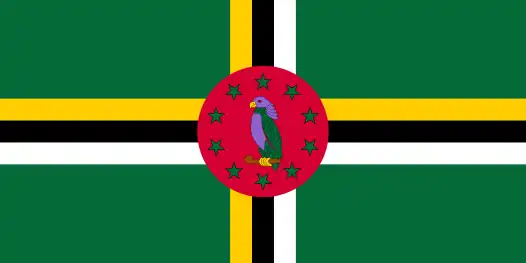 Dominica
Dominica Dominican Republic
Dominican Republic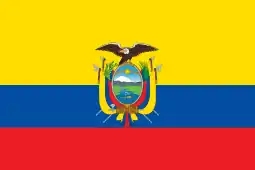 Ecuador
Ecuador El Salvador
El Salvador Grenada
Grenada Guatemala
Guatemala Guyana
Guyana Haiti
Haiti Honduras
Honduras Jamaica
Jamaica Mexico
Mexico Nicaragua
Nicaragua Panama
Panama Paraguay
Paraguay Peru
Peru St. Kitts and Nevis
St. Kitts and Nevis St. Lucia
St. Lucia St. Vincent and The Grenadines
St. Vincent and The Grenadines Suriname
Suriname Trinidad and Tobago
Trinidad and Tobago

 United States: Polygamy is illegal in all 50 states,[98] De facto polygamy is illegal under federal law, the Edmunds Act. Utah, in February 2020, reduced polygamy to the status of a traffic ticket;[99][100] nevertheless recognizing that polygamous unions are illegal under the Constitution of Utah.[101] Polygamy is illegal federally according to the Edmunds Act.
United States: Polygamy is illegal in all 50 states,[98] De facto polygamy is illegal under federal law, the Edmunds Act. Utah, in February 2020, reduced polygamy to the status of a traffic ticket;[99][100] nevertheless recognizing that polygamous unions are illegal under the Constitution of Utah.[101] Polygamy is illegal federally according to the Edmunds Act. Uruguay
Uruguay Venezuela
Venezuela
Asia
As in Africa, polygamy continues to be practiced in parts of Asia, regardless of laws.
 Armenia
Armenia Azerbaijan
Azerbaijan India
India Nepal
Nepal China: Polygamy is illegal under the Civil code passed in 2020, which replaced a similar 1950 and 1980 prohibition.[102]
China: Polygamy is illegal under the Civil code passed in 2020, which replaced a similar 1950 and 1980 prohibition.[102] Hong Kong: Polygamy ended with the passing of the Marriage Act of 1971[103] when the country was a crown colony under the former flag
Hong Kong: Polygamy ended with the passing of the Marriage Act of 1971[103] when the country was a crown colony under the former flag .svg.png.webp) . Previous unions entered into under customary law are recognised in some situations.
. Previous unions entered into under customary law are recognised in some situations. Israel: Polygamy has been banned for all confessional communities since at least 1959.[104] Polygamy was criminalized in 1977, but the law is not consistently enforced and polygamy is still practiced by Negev Bedouins.[105]
Israel: Polygamy has been banned for all confessional communities since at least 1959.[104] Polygamy was criminalized in 1977, but the law is not consistently enforced and polygamy is still practiced by Negev Bedouins.[105] Japan
Japan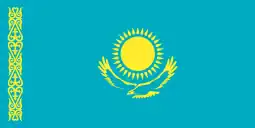 Kazakhstan: Polygamous marriages are not recognized, but the practice is decriminalized, with Kazakhstan being the only Central Asian country to have decriminalized the practice (in 1998, when the new criminal code no longer provided for such an offense).[106]
Kazakhstan: Polygamous marriages are not recognized, but the practice is decriminalized, with Kazakhstan being the only Central Asian country to have decriminalized the practice (in 1998, when the new criminal code no longer provided for such an offense).[106]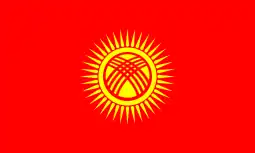 Kyrgyzstan
Kyrgyzstan Mongolia
Mongolia Myanmar[107][108]
Myanmar[107][108] North Korea
North Korea South Korea
South Korea Taiwan (Polygamy is illegal by the 1930 ROC civil law.)[109]
Taiwan (Polygamy is illegal by the 1930 ROC civil law.)[109]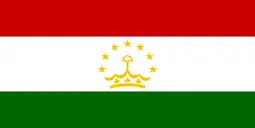 Tajikistan
Tajikistan Turkey (Polygamy was criminalized in 1926 with the adoption of the Turkish Civil Code, part of Atatürk's secularist reforms. Penalties for polygamy are imprisonment of up to 5 years.)[110] Turkey has long been known for its promotion of secularism,[111][112][113] and has introduced measures establishing stricter bars against polygamy; these were passed by the ruling moderate Islamist AK Party as well. In March 2009, AK Parti effectively banned polygamists from entering or living in the country.[114]
Turkey (Polygamy was criminalized in 1926 with the adoption of the Turkish Civil Code, part of Atatürk's secularist reforms. Penalties for polygamy are imprisonment of up to 5 years.)[110] Turkey has long been known for its promotion of secularism,[111][112][113] and has introduced measures establishing stricter bars against polygamy; these were passed by the ruling moderate Islamist AK Party as well. In March 2009, AK Parti effectively banned polygamists from entering or living in the country.[114]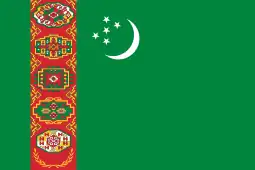 Turkmenistan
Turkmenistan Uzbekistan
Uzbekistan Vietnam
Vietnam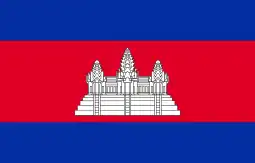 Cambodia[115]
Cambodia[115] Laos
Laos Russia: Polygamous marriages are not recognized in the Russian Federation. The Family Code of Russia states that a marriage can only be contracted between a man and a woman, neither of whom is married to someone else.[116] Furthermore, Russia does not recognize polygamous marriages that had been contracted in other countries.[117] However, neither bigamy nor de facto polygamy are criminalized.[118]
Russia: Polygamous marriages are not recognized in the Russian Federation. The Family Code of Russia states that a marriage can only be contracted between a man and a woman, neither of whom is married to someone else.[116] Furthermore, Russia does not recognize polygamous marriages that had been contracted in other countries.[117] However, neither bigamy nor de facto polygamy are criminalized.[118] Thailand[119]
Thailand[119] Timor-Leste[120]
Timor-Leste[120]
Europe
 Albania
Albania Andorra
Andorra Belarus
Belarus Bosnia and Herzegovina
Bosnia and Herzegovina European Union: Polygamy is illegal in all 27 states. In Bulgaria, polygamy is illegal and punishable with up to three years imprisonment.[121] In Finland, the official prosecutor is obliged to take all cases to a court where more than two persons are married to each other and such relationships cease to exist after the court has decided it.[122] Polygamic marriages performed abroad may be recognized only on narrow occasions, for instance in child custody matters.[123] In France, polygamy is illegal under Article 433-20 of the Penal Code and punishable by one year's imprisonment and a fine of €45,000.[124] In Germany, polygamy is illegal, legally punishable with fine or prison time up to three years.[125] Polygamous marriages contracted abroad are legal, however, the German authorities announced plans to close this legal loophole by making it a barrier to naturalization.[126] In Ireland,[127] the Catholic Church in Ireland allowed someone with a church annulment but no civil annulment to remarry in church; such a marriage was legally null and bigamous but no prosecutions were brought.[128][129] The practice ended after the 1996 legalisation of divorce.[128] In 2017, the Supreme Court ruled that if someone had two legal marriages abroad, only the first was legal in Ireland, though 'that did not necessarily mean [the second] marriage "can never have legal consequences [in Ireland]"'.[130] In the Netherlands, a marriage between more than two individuals is prohibited; however, a samenlevingscontract may include more than two partners. It legally accepts immigrants who are in such a union from a country where it is legal; e.g. if a man with two wives immigrates to The Netherlands, all three will be legally recognized.[131] In Romania, bigamy, defined as marriage conducted by a person who is already married, is punishable by up to 2 years in prison or fine. Knowingly marrying a married person is punishable by up to 1 year in prison or by fine.[132] In Sweden, a person who is already married is not permitted to enter into another marriage. In the past, Sweden generally recognized polygamous marriages performed abroad.[133][134][135] However, the Swedish government decided to task an inquiry chair with reviewing how to prevent recognition of foreign polygamous marriages in Sweden; Deputy Minister for Justice, Heléne Fritzon stating that "Polygamous marriages should not be recognised in Sweden and we need to review the existing legal loophole that makes it possible. Polygamous marriages undermine gender equality and, according to the UN, it can have serious emotional and financial consequences".[136] Since 2021, Sweden no longer recognizes foreign polygamous marriages, save in exceptional circumstances.[137]
European Union: Polygamy is illegal in all 27 states. In Bulgaria, polygamy is illegal and punishable with up to three years imprisonment.[121] In Finland, the official prosecutor is obliged to take all cases to a court where more than two persons are married to each other and such relationships cease to exist after the court has decided it.[122] Polygamic marriages performed abroad may be recognized only on narrow occasions, for instance in child custody matters.[123] In France, polygamy is illegal under Article 433-20 of the Penal Code and punishable by one year's imprisonment and a fine of €45,000.[124] In Germany, polygamy is illegal, legally punishable with fine or prison time up to three years.[125] Polygamous marriages contracted abroad are legal, however, the German authorities announced plans to close this legal loophole by making it a barrier to naturalization.[126] In Ireland,[127] the Catholic Church in Ireland allowed someone with a church annulment but no civil annulment to remarry in church; such a marriage was legally null and bigamous but no prosecutions were brought.[128][129] The practice ended after the 1996 legalisation of divorce.[128] In 2017, the Supreme Court ruled that if someone had two legal marriages abroad, only the first was legal in Ireland, though 'that did not necessarily mean [the second] marriage "can never have legal consequences [in Ireland]"'.[130] In the Netherlands, a marriage between more than two individuals is prohibited; however, a samenlevingscontract may include more than two partners. It legally accepts immigrants who are in such a union from a country where it is legal; e.g. if a man with two wives immigrates to The Netherlands, all three will be legally recognized.[131] In Romania, bigamy, defined as marriage conducted by a person who is already married, is punishable by up to 2 years in prison or fine. Knowingly marrying a married person is punishable by up to 1 year in prison or by fine.[132] In Sweden, a person who is already married is not permitted to enter into another marriage. In the past, Sweden generally recognized polygamous marriages performed abroad.[133][134][135] However, the Swedish government decided to task an inquiry chair with reviewing how to prevent recognition of foreign polygamous marriages in Sweden; Deputy Minister for Justice, Heléne Fritzon stating that "Polygamous marriages should not be recognised in Sweden and we need to review the existing legal loophole that makes it possible. Polygamous marriages undermine gender equality and, according to the UN, it can have serious emotional and financial consequences".[136] Since 2021, Sweden no longer recognizes foreign polygamous marriages, save in exceptional circumstances.[137] Georgia
Georgia Iceland
Iceland Kosovo
Kosovo Liechtenstein
Liechtenstein Moldova
Moldova Monaco
Monaco Montenegro
Montenegro North Macedonia
North Macedonia Norway
Norway Russia: Polygamous marriages are not recognized in Russia. The Family Code of Russia states that a marriage can only be contracted between a man and a woman, neither of whom is married to someone else.[116] Furthermore, Russia does not recognize polygamous marriages that had been contracted in other countries.[117] However, neither bigamy nor de facto polygamy are criminalized.[118]
Russia: Polygamous marriages are not recognized in Russia. The Family Code of Russia states that a marriage can only be contracted between a man and a woman, neither of whom is married to someone else.[116] Furthermore, Russia does not recognize polygamous marriages that had been contracted in other countries.[117] However, neither bigamy nor de facto polygamy are criminalized.[118] San Marino
San Marino Serbia
Serbia.svg.png.webp) Switzerland: Polygamy is illegal by law. But polygamous marriage conducted in another country may be accepted or rejected on a case-by-case basis.[138]
Switzerland: Polygamy is illegal by law. But polygamous marriage conducted in another country may be accepted or rejected on a case-by-case basis.[138] Ukraine
Ukraine United Kingdom: Foreign polygamous marriages grant some welfare benefits only, but this is being phased out with the introduction of Universal Credit.[139] Polygamy is treated as bigamy if a second marriage (or civil partnership) is contracted in the United Kingdom. No legal recognition is extended to spouses of subsequent marriages after the first marriage is recognised even when subsequent marriages are contracted abroad.
United Kingdom: Foreign polygamous marriages grant some welfare benefits only, but this is being phased out with the introduction of Universal Credit.[139] Polygamy is treated as bigamy if a second marriage (or civil partnership) is contracted in the United Kingdom. No legal recognition is extended to spouses of subsequent marriages after the first marriage is recognised even when subsequent marriages are contracted abroad..svg.png.webp) Vatican City (Holy See)
Vatican City (Holy See)
Oceania
.svg.png.webp) Australia: Polygamous marriages cannot be performed in Australia, but polygamous relationships are still common within some indigenous Australian communities.[140][141] Polygamous marriages entered into abroad are recognised for limited purposes only.[142]
Australia: Polygamous marriages cannot be performed in Australia, but polygamous relationships are still common within some indigenous Australian communities.[140][141] Polygamous marriages entered into abroad are recognised for limited purposes only.[142] Fiji
Fiji Kiribati
Kiribati Marshall Islands
Marshall Islands Micronesia
Micronesia Nauru
Nauru New Zealand: Polygamous marriages cannot be performed in New Zealand, but are permissible if they are legally performed in a country that permits polygamy.
New Zealand: Polygamous marriages cannot be performed in New Zealand, but are permissible if they are legally performed in a country that permits polygamy. Palau
Palau Papua New Guinea
Papua New Guinea Samoa
Samoa Tonga
Tonga Tuvalu
Tuvalu Vanuatu
Vanuatu
Current legislation
In most countries, a person who marries a person while still being lawfully married to another commits bigamy, a criminal offence, though penalties vary between jurisdictions. Besides, the second and subsequent marriages are considered legally null and void.
The United Kingdom, Australia, and New Zealand permit some benefits for spouses of polygamous marriages performed abroad. In the past, Sweden used to recognize polygamous marriages performed abroad; but since 2021, Sweden no longer recognizes such marriages, save in exceptional circumstances.[137] In Switzerland polygamous marriages conducted abroad may be accepted or rejected on a case-by-case basis;[143] see § Europe.
In Canada, both bigamy (article 290 of the Criminal code of Canada)[144]) and de facto polygamy (article 293 of the Criminal Code) [145] are illegal, but there are provisions in the property law of at least the Canadian province of Saskatchewan that consider the possibility of de facto multiple marriage-like situations (e.g. if an already married person enters into a second common-law relationship situation without first obtaining a legal divorce from their existing spouse).[146]
The vast majority of sovereign states with a Muslim-majority population recognize polygamous marriages: these states span from the West Africa to Southeast Asia, with the exceptions of Turkey, Tunisia, Albania, Kosovo and Central Asian countries.[147][148][149][150]
Predominantly Christian nations usually do not allow polygamy, with a handful of exceptions such as the Republic of the Congo, Uganda, and Zambia.
Almost a dozen countries that do not permit polygamous civil marriages recognize polygamous marriages under customary law. All the northern states in Nigeria governed by Islamic Sharia law recognize polygamous marriages. The autonomous regions of Somaliland and Puntland in northern Somalia also recognize polygamy, as does the country's Transitional Federal Government itself, since the country is governed by Sharia law. The recently independent country of Southern Sudan also recognizes polygamy.
Polyandry is de facto the norm in rural areas of Tibet, although it is illegal under Chinese family law. Polygamy continues in Bhutan[38] in various forms as it has since ancient times. It is also found in parts of Nepal,[151] despite its formal illegality in the country.[152]
Debates of legalizing polygamous marriages continue in Central Asian countries.
International law
In 2000, the United Nations Human Rights Committee reported that polygamy violates the International Covenant on Civil and Political Rights (ICCPR), citing concerns that the lack of "equality of treatment with regard to the right to marry" meant that polygamy, restricted to polygyny in practice, violates the dignity of women and should be outlawed.[153] Specifically, the reports to UN Committees have noted violations of the ICCPR due to these inequalities[154] and reports to the General Assembly of the UN have recommended it be outlawed.[155][156]
Some countries where polygamy is legal are not signatories of ICCPR, including Saudi Arabia, United Arab Emirates, Qatar, Oman, Malaysia, Brunei and South Sudan; so that ICCPR does not apply to these countries.[157] It has been argued by the Department of Justice of Canada that polygyny is a violation of international human rights law.[158]
Notable legislation
The tables below cover recent pieces of legislation that have been either debated, proposed or voted on; all of which concerns a form of polygamous union.
To permit polygamy
| Country | Date | Polygamous union | Upper House | Lower House | Head of State | Final outcome | ||
|---|---|---|---|---|---|---|---|---|
| Yes | No | Yes | No | |||||
| 1963 | Polygamous civil marriage (revoke of prohibitions)[159] | Passed | Passed | Signed | ||||
| February 1977 | Polygamous civil marriage (Muslims only)[160] | - | - | Signed | ||||
| 1987 or earlier | Foreign marriages may receive benefits payments, being phased out[139] | |||||||
| 1994 | Customary law (recognizes polygamous unions)[161] | Passed | Passed | Signed | ||||
| 1998 | Polygamous civil marriage [162] | Passed | Passed | Signed | ||||
| 1998 | Customary marriage (civil recognition)[163] | Passed | Passed | Signed | ||||
| 2003 | Customary law (recognizes polygamous unions)[164] | Passed | Passed | Signed | ||||
| 2004 | Pension benefits to wives of a deceased president[165] | - | Failed | - | ||||
| 2005 | Polygamous civil marriage (easing of laws; plus restrictions) | Passed | Passed | Signed | ||||
| 2007 | Polygamous civil marriage[166] | Failed | - | - | - | |||
| 2007 | Polygamous civil marriage[166] | Failed | - | - | - | |||
| 2007 | Polygamous civil marriage | Failed | - | - | - | |||
| 2007 | Polygamous civil marriage | Failed | - | - | - | |||
| 2007 | Polygamous civil marriage | Failed | - | - | - | |||
| June 2008 | Polygamous civil marriage[167] | Failed | - | - | - | |||
| September 2008 | Polygamous civil marriage (easing of laws)[168] | Failed | - | - | - | |||
| July 2009 | Polygamous civil marriage[169] | Proposed | - | - | - | - | ||
| 2009 | Polygamous civil marriage | Proposed | - | - | - | - | ||
| March 2014 | Polygamous civil marriage | Passed[16] | - | - | - | |||
To outlaw polygamy
| Country | Date | Prohibition type | Upper House | Lower House | Head of State | Final outcome | ||
|---|---|---|---|---|---|---|---|---|
| Yes | No | Yes | No | |||||
| July 1862 | Morrill Anti-Bigamy Act, which made polygamy a misdemeanor offense in US territories and other areas where the federal government has exclusive jurisdiction. | ' | ' | Signed | ||||
| March 1882 | Edmunds Act, which reinforced Morrill by making polygamy a felony in the jurisdictions covered by Morrill; also prohibited "bigamous" or "unlawful cohabitation" as a misdemeanor offense, which removed the need to prove that actual marriages had occurred in order to obtain convictions on polygamy related charges. | Passed | Passed | Signed | ||||
| October 1921 | Outlaws polygamy[170] | Passed | Passed | Signed | ||||
| October 1935 | Outlaws polygamy; polygamous marriage[171] | Passed | Passed | Signed | ||||
| October 1950 | Outlaws polygamy | Passed | Passed | Signed | ||||
| 1953 | Restrictions on polygamous marriage[159] | Passed | Passed | Signed | ||||
| 1955 | Outlaws Polygamy (Polygamy for Muslims was outlawed after a verdict by the Supreme Court of India in 2015)[172] | Passed | Passed | Signed | ||||
| 1956 | Ban on polygamy; polygamous marriages[173] | Passed | Passed | Signed | ||||
| 1959 | Ban on polygamy; polygamous marriage[159] | Passed | Passed | Signed | ||||
| 1964 | New penal code outlaws polygamy; polygamous marriages (upholds existing) | Passed | Passed | Signed | ||||
| 1971 | Outlaws polygamy[174] | Passed | Passed | Signed | ||||
| 1977 | Outlaws polygamy; polygamous marriage (districts under Sharia exempt)[175] | Passed | Passed | Signed | ||||
| 1979 | Restrictions on polygamous marriage; ease of divorce laws[173] | Passed; abrogated | - | - | - | |||
| 1985 | Restrictions on polygamous marriage (less liberal)[173] | Passed | Passed | Signed | ||||
| 1993 | Outlaws family reunion for polygamist immigrants[176] | Passed | Passed | Signed | ||||
| December 2003 | Outlaws polygamy[177] | Failed | - | - | ||||
| 2003 | Restrictions on polygamous marriage[173] | Passed | Passed | Signed | ||||
| August 2004 | New penal code outlaws polygamy; polygamous marriages (upholds existing)[178] | Passed | Passed | Signed | ||||
| February 2005 | Restrictions on polygamous marriage (heavy restrictions)[179] | Passed | Passed | Signed | ||||
| July 2005 | Outlaws polygamy[180] | Failed | - | - | ||||
| 2007 | Bans civil servants from living polygamously[181] | Passed | Passed | Signed | ||||
| May 2008 | Restrictions on polygamous marriage (heavy restrictions) | Passed | Passed | Signed | ||||
| June 2008 | Outlaws polygamy[177] | Failed | - | - | ||||
| Nov. 2008 | Outlaws polygamy except in selective circumstances[182] | Passed | Passed | Signed | ||||
| March 2009 | 2009 Mahoran status referendum (passage outlaws polygamy)[183] | Territory-wide referendum | ||||||
| May 2009 | Disallows polygamists from immigrating into the country[184] | |||||||
| July 2009 | Restrictions on polygamous marriage[185] | Pending | Pending | - | - | |||
| July 2009 | Ban on polygamy and polygamous customary marriages | Proposed | - | - | - | - | ||
See also
References
- ↑ "Algeria – Researched and compiled by the Refugee Documentation Centre of Ireland on 22 July 2011 : Information on forced marriages and polygamous marriages, including the treatment of women" (PDF). Refworld.org. Retrieved 6 January 2017.
- ↑ "In modern Cameroon polygamy doesn't pay - csmonitor.com". Christian Science Monitor. 10 February 2009. Archived from the original on 10 February 2009.
{{cite journal}}: CS1 maint: bot: original URL status unknown (link) - ↑ "Christian Polygamy In Chad Africa". Christian Polygamy Society. December 2011. Archived from the original on 2 July 2012.
- ↑ OECD (20 February 2010). Atlas of Gender and Development How Social Norms Affect Gender Equality in non-OECD Countries. OECD Publishing. p. 206. ISBN 978-9264077478.
The practice of polygamy is legal in the Central African Republic but faces growing resistance among educated women
- ↑ "Republic Of Congo Responds To Questions Raised In Women'S Anti-Discrimination Committee | Meetings Coverage And Press Releases". Un.org. 29 January 2003. Retrieved 6 January 2017.
- ↑ "Women's rights protection instruments ratified by Djibouti" (PDF). Africa4womensrights.org. Retrieved 6 January 2017.
- ↑ Primo, Valentina (27 September 2015). "Polygamy in Egypt: Why I Decided to Marry a Second Wife". carioscene. Retrieved 30 December 2016.
We all know male polygamy is legal.
- ↑ Refugees, United Nations High Commissioner for. "Refworld - Swaziland: Laws and customs in Swaziland regarding polygamy".
- ↑ "Gender Equality and Social Institutions in Gabon". Social Institutions & Gender Index, genderindex.org. 2007. Archived from the original on 19 June 2010. Retrieved 27 April 2009.
- ↑ "African Women's Rights Observatory > Country Specific Information - Gabon". Uneca.org. Retrieved 6 January 2017.
- ↑ pt. "Polygamy in Gambia". Accessgambia.com. Retrieved 6 January 2017.
- ↑ "Gender Equality in Guinea | Social Institutions and Gender Index (SIGI)". Genderindex.org. Retrieved 6 January 2017.
- ↑ "Libyan men now allowed to remarry without consent of first wife: court rule". English.alarabiya.net. Archived from the original on 1 November 2016. Retrieved 29 October 2014.
- ↑ "Polygamy in Libya — and beyond". Salon.com. Retrieved 29 October 2014.
- ↑ "Libya's Women Activists Outraged by Court Ruling on Wives". VOA. Retrieved 29 October 2014.
- 1 2 "Kenyan parliament passes polygamy law". Al Jazeera. 21 March 2014.
- ↑ "Mali: polygamy, including conditions to be met for a man to be able to marry a second wife; divorce, specifically when a woman requests a divorce, including the grounds and treatment of women by society and the authorities (2012-December 2013)". Refworld.org. Retrieved 6 January 2017.
- ↑ "Gender Equality in Mauritania | Social Institutions and Gender Index (SIGI)". Genderindex.org. Retrieved 6 January 2017.
- ↑ Medini, Mona (23 January 2015). "Polygamy: How Moroccans trick to have a second wife". MBC Times. Archived from the original on 17 August 2016. Retrieved 25 November 2016.
[Polygamy] legally becomes theoretically almost impossible if not completely impossible.
- ↑ Itoro E. Akpan-Iquot. "Traditional marriage in Nigeria: Polygamy". Migerianwomenworld.com. Archived from the original on 30 December 2011. Retrieved 21 November 2014.
- ↑ "Gay Life in São Tomé and Príncipe". Globalgayz.com. Retrieved 6 January 2017.
- ↑ "Gender Equality in Senegal | Social Institutions and Gender Index (SIGI)". Genderindex.org. Retrieved 6 January 2017.
- ↑ "Acceptance of Polygamy Slowly Changes in Muslim Africa", VOANews.com, Voice of America, 12 March 2007, archived from the original on 7 May 2009
- ↑ "Somaliland marriages are valid". Free Movement. 6 February 2020. Retrieved 11 January 2021.
- ↑ "Is polygamy corrupting South Sudan?". Daily Sabah Africa. 11 February 2015. Retrieved 30 December 2016.
Polygamy is commonly practiced in many African societies, including South Sudan.
- ↑ "MJC (SA) welcomes the Constitutional Court ruling on the recognition of Muslim Marriages". MJC (SA) | Muslim Judicial Council of South Africa. 7 July 2022. Retrieved 17 July 2022.
- ↑ "Women's Legal Centre Trust v President of the Republic of South Africa and Others (CCT 24/21) [2022] ZACC 23 (28 June 2022)". www.saflii.org. Retrieved 17 July 2022.
- ↑ PDF of Supreme Court Decision http://www.saflii.org/za/cases/ZACC/2022/23media.pdf
- ↑ "AFRICA | Sudan pushes polygamy". BBC News. 15 August 2001. Retrieved 6 January 2017.
- ↑ United Nations High Commissioner for Refugees. "Togo: Polygamy among the country's ruling elite". Refworld.org. Retrieved 6 January 2017.
- ↑ "Divorce and Polygamy in Tanzania" (PDF). Ecommons.luc.edu. Retrieved 6 January 2017.
- ↑ "Gender Equality in Uganda | Social Institutions and Gender Index (SIGI)". Genderindex.org. Retrieved 6 January 2017.
- ↑ "Gender Equality in Zambia | Social Institutions and Gender Index (SIGI)". Genderindex.org. Retrieved 6 January 2017.
- ↑ Nordland, Rod; Sukhanyar, Jawad (7 November 2015). "Afghan Mullah Leading Stoning Inquiry Condones Practice". The New York Times. Retrieved 1 November 2016.
- ↑ "Freedom House: Women's Rights in Bahrain 2009 | Bahrain Center for Human Rights". Bahrainrights.org. 18 March 2009. Archived from the original on 17 January 2018. Retrieved 6 January 2017.
- ↑ "Gender Equality in Bangladesh | Social Institutions and Gender Index (SIGI)". Genderindex.org. Retrieved 6 January 2017.
- ↑ "Gender Equality in Bhutan | Social Institutions and Gender Index (SIGI)". Genderindex.org. Retrieved 6 January 2017.
- 1 2 French, Patrick (1 March 2008). "Bhutan: Last wonder". The Daily Telegraph. London. Retrieved 21 October 2010.
- ↑ "Laws of Brunei" (PDF). Ftcam.de. Retrieved 6 January 2017.
- ↑ "Gender Equality in Indonesia | Social Institutions and Gender Index (SIGI)". Genderindex.org. Retrieved 6 January 2017.
- ↑ "Gender Equality in Iran, Islamic Rep. | Social Institutions and Gender Index (SIGI)". Genderindex.org. Retrieved 6 January 2017.
- ↑ Bassem, Wassim (26 January 2015). "Rising incomes mean many Iraqi men marry multiple wives". Al-Monitor. Retrieved 30 December 2016.
- ↑ "Marriage in Jordan - U.S. Embassy in Jordan".
- ↑ Chaleby, Kutaiba (1985). "Women of Polygamous Marriages in an Inpatient Psychiatric Service in Kuwait". The Journal of Nervous and Mental Disease. 173 (1): 56–8. doi:10.1097/00005053-198501000-00009. PMID 3965613. S2CID 13737031.
- ↑ "Maldives divorce rate soars". Unmarriedamerica.org. 31 October 2003. Retrieved 6 January 2017.
- ↑ "Gender Equality in Oman | Social Institutions and Gender Index (SIGI)". Genderindex.org. Retrieved 6 January 2017.
- ↑ "Polygamy rates decline in Qatar: Study". www.alarabiya.net. Archived from the original on 25 January 2011. Retrieved 17 January 2022.
- ↑ "Abdullahi Ahmed An-Na'im". Law.emory.edu. Retrieved 6 January 2017.
- ↑ "Gender Equality in Saudi Arabia | Social Institutions and Gender Index (SIGI)". Genderindex.org. Retrieved 6 January 2017.
- ↑ "Gender Equality in Syrian Arab Republic | Social Institutions and Gender Index (SIGI)". Genderindex.org. Retrieved 6 January 2017.
- ↑ "Gender Equality in United Arab Emirates | Social Institutions and Gender Index (SIGI)". Genderindex.org. Retrieved 6 January 2017.
- ↑ "Gender Equality in Yemen | Social Institutions and Gender Index (SIGI)". Genderindex.org. Retrieved 6 January 2017.
- ↑ "Solomon Islands : Gender and Investment Climate Reform Assessment" (PDF). Ifc.org. Retrieved 6 January 2017.
- ↑ "What are the types of marriages in Malaysia? - Marriage - Lawyerment Knowledge Base". Lawyerment.com. 16 November 2016. Retrieved 6 January 2017.
- ↑ "Philippines - Muslim Filipinos". countrystudies.us.
- ↑ "Bigamy committed by Muslim convert for contracting 2nd marriage". The Manila Times. 25 May 2017. Retrieved 31 January 2022.
- ↑ "Supreme Court: Converting to Islam to marry a second spouse is bigamy". CNN Philippines. 23 March 2022. Retrieved 30 March 2022.
- ↑ "Interview: Women Unequal Under Lebanon's Law". 19 January 2015.
- ↑ "Gender Equality in Pakistan | Social Institutions and Gender Index (SIGI)". Genderindex.org. Retrieved 6 January 2017.
- ↑ "Women's rights protection instruments ratified by Botswana" (PDF). Africa4womensrights.org. Archived from the original (PDF) on 3 January 2017. Retrieved 6 January 2017.
- ↑ "Concluding observations on the combined initial to fourth periodic reports of Lesotho" (PDF). Tbinternet.ohchr.org. Archived from the original (PDF) on 7 March 2022. Retrieved 6 January 2017.
- ↑ "Gender Equality in Liberia | Social Institutions and Gender Index (SIGI)". Genderindex.org. Retrieved 6 January 2017.
- ↑ "Gender Equality in Malawi | Social Institutions and Gender Index (SIGI)". Genderindex.org. Retrieved 6 January 2017.
- ↑ "Gender Equality in Namibia | Social Institutions and Gender Index (SIGI)". Genderindex.org. Retrieved 6 January 2017.
- ↑ "Gender Equality in Niger | Social Institutions and Gender Index (SIGI)". Genderindex.org. Retrieved 6 January 2017.
- ↑ "Gender Equality in Nigeria | Social Institutions and Gender Index (SIGI)". Genderindex.org. Retrieved 6 January 2017.
- ↑ CEDAW (2007), Responses to the List of Issues And Questions with Regard to the Consideration of the Combined Initial, Second, Third, Fourth and Fifth Periodic Reports: Sierra Leone, CEDAW/C/SLE/Q/5/Add. 1, CEDAW, New York, NY, p. 17.
- ↑ "Zimbabwe". State.gov. 6 March 2007. Retrieved 6 January 2017.
- ↑ "Polygamy is rare around the world and mostly confined to a few regions".
- ↑ "Polygamy is rare around the world and mostly confined to a few regions".
- ↑ Almeida, Henrique (14 July 2009). "Polygamy in Angola isn't legal, but it is common". Reuters. Archived from the original on 11 December 2018. Retrieved 30 December 2016.
Although Angolan law condemns polygamy, or multiple marriages, the practice is widespread in a country with a large share of female-headed households and where woman are often left alone to care for their children.
- ↑ "Gender Equality in Benin | Social Institutions and Gender Index (SIGI)". Genderindex.org. Retrieved 6 January 2017.
- ↑ "Gender Equality in Burkina Faso | Social Institutions and Gender Index (SIGI)". Genderindex.org. Retrieved 6 January 2017.
- ↑ Jensen Arnett, Jeffrey (2007). International encyclopedia of adolescence: A-J, index, Volume 1. Taylor & Francis. p. 123. ISBN 978-0415966672.
- ↑ "The Culture of Cape Verde". August 2017.
- ↑ "Tied in knots? Polygamy persists in DR Congo despite ban". 5 April 2022.
- ↑ "Gender Equality in Cote d'Ivoire | Social Institutions and Gender Index (SIGI)". Genderindex.org. Archived from the original on 21 December 2016. Retrieved 6 January 2017.
- ↑ "PENAL CODE OF THE STATE OF ERITREA" (PDF). Refworld.org. Retrieved 6 January 2017.
- ↑ "Examining the Life of Women in Western Africa" (PDF). Uoregon.edu. Retrieved 6 January 2017.
- ↑ "Abdullahi Ahmed An-Na'im". Law.emory.edu. Retrieved 6 January 2017.
- ↑ "Archived copy" (PDF). www.uneca.org. Archived from the original (PDF) on 4 February 2009. Retrieved 17 January 2022.
{{cite web}}: CS1 maint: archived copy as title (link) - ↑ "Gender Equality in Ghana - Social Institutions and Gender Index (SIGI)". Genderindex.org. Archived from the original on 25 September 2015. Retrieved 24 September 2015.
- ↑ "Ghana". Law.emory.edu. Retrieved 24 September 2015.
- ↑ "Microsoft Word - Q14320 Ethiopia" (PDF). Justice.gov. Retrieved 6 January 2017.
- ↑ "BIGAMOUS MARRIAGE AND THE DIVISION OF COMMON PROPERTY UNDER THE ETHIOPIAN LAW: REGULATORY CHALLENGES AND OPTIONS". Ajol.info. Retrieved 6 January 2017.
- ↑ OECD (2010). Atlas of Gender and Development: How Social Norms Affect Gender Equality in non-OECD Countries. Paris: Organisation for Economic Co-operation and Development. Development Centre. ISBN 978-92-64-07520-7.
- ↑ Chrisafis, Angelique (26 March 2009). "Welcome to France: home of sun, sea, sand, polygamy and the Indian Ocean". Guardian. London. Retrieved 21 October 2010.
- ↑ "Muslim island must give up polygamy as price of being part of France". Sydney Morning Herald. 31 March 2009. Retrieved 21 October 2010.
- ↑ Mwareya, Ray (5 July 2016). "Widows without sons in Mozambique accused of sorcery and robbed of land". Reuters. Retrieved 30 December 2016.
Although polygamy is prohibited in Mozambique there is no punishment. Across the country nearly a third of married women are thought to be in polygamous marriages, according to a NORAD survey.
- ↑ "ICL - Rwanda - Constitution". Archived from the original on 28 June 2010. Retrieved 10 January 2017.
- ↑ Tunisian women free to marry non-Muslims, BBC, 16 Sept 2017
- ↑ "DEL2848compilado". www.planalto.gov.br. Archived from the original on 13 March 2016. Retrieved 21 January 2013.
- ↑ "Criminal Code". Laws-lois.justice.gc.ca. Retrieved 6 January 2017.
- ↑ "Criminal Code". Laws-lois.justice.gc.ca. Retrieved 6 January 2017.
- ↑ Lak, Daniel (21 January 2009). "Polygamy in Canada". CBC News. Retrieved 23 July 2009.
- ↑ "Crown wants polygamy testimony off internet". CBC News. 26 November 2010.
- 1 2 3 4 "Canada's polygamy laws upheld by B.C. Supreme Court". CBC News. 23 November 2011.
- ↑ Barbara Bradley Hagerty (27 May 2008). "Some Muslims in U.S. Quietly Engage in Polygamy". National Public Radio: All Things Considered. Retrieved 23 July 2009.
- ↑ "Polygamy bill passes the Utah State Legislature". 2020-02-27. Retrieved 2021-06-10.
- ↑ "S.B. 102 Bigamy Amendments". Retrieved 10 June 2021.
- ↑ "Polygamy is essentially decriminalized in Utah under a bill signed into law". 29 March 2020.
- ↑ "Marriage Law of the People's Republic of China". www.lawinfochina.com.
- ↑ "Hong Kong Moves to Forbid New Concubines After June, '71". The New York Times. 31 May 1970.
- ↑ The English Law of Bigamy in a Multi-Confessional Society: The Israel Experience by P Shifman.
- ↑ Ben Zikri, Almog (25 November 2018). "Out of Over 300 Polygamy Cases in Israel in 2018, 16 Reached Indictments". Haaretz. Retrieved 14 May 2019.
- ↑ Najibullah, Farangis (23 June 2011). "Polygamy a Fact of Life in Kazakhstan". Radio Free Europe/Radio Liberty.
- ↑ "Myanmar's president signs off on polygamy law seen as targeting Muslims". Aljazeera. August 2015.
- ↑ Chin Kim (1973). "Law of Marriage and Divorce in North Korea". The International Lawyer. 7 (4): 910. OCLC 759928863.
- ↑ "民法-結婚要件之研析".
- ↑ "Polygamy Fosters Culture Clashes (and Regrets) in Turkey", New York Times, 10 July 2006
- ↑ ""Turkey Between Secularism and Islamism" by Jacob M. Landau".
- ↑ "Turkey's secularism 'threatened'", BBC
- ↑ Alev Çinar, "Modernity, Islam, and Secularism in Turkey"
- ↑ "Polygamy in Turkey", Polygamy 411, May 2009
- ↑ Mony, Keo (5 February 2008). "Cambodian Marriage". Ethnomed. Retrieved 1 January 2017.
The modern constitution forbids polygamy; some say it is commonly practiced more often when family economics permit.
- 1 2 "Family Code of the Russian Federation, Articles 12 & 14" (in Russian). Retrieved 6 August 2012.
- 1 2 "Family Code of the Russian Federation, Article 158" (in Russian). Retrieved 6 August 2012.
- 1 2 Neither bigamy, nor polygamy, nor cohabitation is listed as a crime or offence in the Criminal Code of Russia or the Offences Code of Russia
- ↑ Chintana Yossoonthorn, Women in Thailand, Proceedings of the Peace Corps Conference on Women and Development Bangkok, 1979, p. 11.
- ↑ "Timor-Leste : Discriminatory family code" (PDF). Genderindex.org. Archived from the original (PDF) on 3 January 2017. Retrieved 6 January 2017.
- ↑ "Bulgarian Penal Code, art. 179". Archived from the original on 20 April 2016. Retrieved 8 April 2016.
- ↑ "Marriage Act" (PDF). Finlex.
- ↑ "FINLEX ® - Hallituksen esitykset: HE 44/2001". www.finlex.fi.
- ↑ https://www.legislationline.org/download/id/3316/file/France_Criminal%20Code%20updated%20on%2012-10-2005.pdf
- ↑ "§172 StGB".
- ↑ Bewarder, Manuel (4 May 2019). "Polygamie: Einbürgerung bleibt trotz Mehrehe möglich". Retrieved 23 August 2019.
- ↑ "Offences Against The Person Act, 1861". Irish Statute Book. Section 57. Retrieved 15 June 2017.
- 1 2 Maogoto, Jackson Nyamuya; Anolak, Helena (2009). "Legalising Divorce in the Republic of Ireland: A Canonical Harness to the Legal Liberation of the Right to Marriage Among the Disenfranchised". SSRN Electronic Journal. doi:10.2139/ssrn.1465343. ISSN 1556-5068.
- ↑ Shatter, Alan (5 October 1995). "Fifteenth Amendment of the Constitution (No. 2) Bill, 1995: Committee Stage". Select Committee on Legislation and Security Debate. Oireachtas. Retrieved 15 June 2017.
The State does not recognise church decrees of annulment. In effect, all marriages celebrated after a church decree of annulment are bigamous and priests celebrating these marriages are accessories before the fact to bigamy and liable to criminal prosecution. ... we have turned a blind eye to the celebration of bigamous marriages and abandoned couples who celebrate them to a legal limbo for so many years.
- ↑ Carolan, Mary (15 June 2017). "First marriage of Lebanese man with two wives recognised under Irish law". The Irish Times. Retrieved 15 June 2017.
- ↑ Geysegom (1997). "Samenlevingscontracten 1997: focus op het buurtniveauPretekst" (12): 17–19.
{{cite journal}}: Cite journal requires|journal=(help) - ↑ "Romanian Penal Code, art. 376". Retrieved 5 February 2015.
- ↑ Svenska Dagbladet: Månggifte godkänns – ibland (accessed 15 January 2016)
- ↑ Aftonbladet: Jodå – månggifte ÄR tillåtet i Sverige (accessed 15 January 2016)
- ↑ "Tillåtet för män att ha flera fruar". Archived from the original on 19 January 2016. Retrieved 15 January 2016.
- ↑ "New rules against foreign polygamous marriages". 25 July 2018.
- 1 2 "The Act on Polygamy and Marriage between Related Persons to be tightened".
- ↑ "Archived copy" (PDF). Archived from the original (PDF) on 4 March 2016. Retrieved 15 August 2013.
{{cite web}}: CS1 maint: archived copy as title (link) - 1 2 "House of Commons Library Briefing Note: Polygamy" (PDF). House of Commons Library. 12 October 2011.
- ↑ "Aboriginal Marriages and Family Structures". Australian Law Reform Commission. Archived from the original on 23 August 2019. Retrieved 20 October 2017.
- ↑ "How common is polygamy in Australia? And how does it work?". SBS. 29 May 2012. Archived from the original on 20 October 2017. Retrieved 20 October 2017.
- ↑ "FAMILY LAW ACT 1975 - SECT 6 Polygamous marriages". www.austlii.edu.au.
- ↑ "Eheschliessungen im Ausland" (PDF). Rwi.uzh.ch. Archived from the original (PDF) on 4 March 2016. Retrieved 6 January 2017.
- ↑ "Consolidated federal laws of Canada, Criminal Code". 23 June 2022.
- ↑ "Consolidated federal laws of Canada, Criminal Code". 23 June 2022.
- ↑ "The Problem of "relationship overlap" in Saskatchewan". 5 January 2011.
- ↑ Nurmila, Nina (10 June 2009). Women, Islam and Everyday Life: Renegotiating Polygamy in Indonesia. Routledge. ISBN 9781134033706 – via Google Books.
- ↑ Maike Voorhoeve (31 January 2013). "Tunisia: Protecting Ben Ali's Feminist Legacy". Think Africa Press. Archived from the original on 23 January 2015. Retrieved 23 January 2015.
- ↑ Kudat, Ay?e; Peabody, Stan; Keyder, Ça?lar (29 December 2017). Social Assessment and Agricultural Reform in Central Asia and Turkey. World Bank Publications. ISBN 9780821346785 – via Google Books.
- ↑ "LES EXPERTS DU CEDAW S'INQUIÈTENT DE LA PERSISTANCE DE STÉRÉOTYPES SEXISTES ET DE LA SITUATION DES MINORITÉS EN SERBIE". United Nations. 16 May 2007. Retrieved 3 February 2016.
- ↑ Grabianowski, Ed (31 May 2006). "How Polygamy Works". People.howstuffworks.com. Retrieved 21 October 2010.
- ↑ "Multiple Damage of Polygamy by Saktida". Boloji.com. 31 October 2004. Archived from the original on 31 January 2010. Retrieved 21 October 2010.
- ↑ "Equality of Rights Between Men and Women". University of Minnesota Human Rights Library.
- ↑ "OHCHR report" (PDF). Office of the High Commissioner for Human Rights.
- ↑ "Report of the Human Rights Committee" (PDF). United Nations General Assembly.
- ↑ "GENERAL COMMENTS ADOPTED BY THE HUMAN RIGHTS COMMITTEE UNDER ARTICLE 40, PARAGRAPH 4, OF THE INTERNATIONAL COVENANT ON CIVIL AND POLITICAL RIGHTS". United Nations Human Rights Website. Archived from the original on 30 June 2013.
- ↑ "United Nations Treaty Collection". Archived from the original on 8 April 2017. Retrieved 6 June 2016.
- ↑ "POLYGYNY AS A VIOLATION OF INTERNATIONAL HUMAN RIGHTS LAW". Department of Justice, Government of Canada. 11 July 2006.
- 1 2 3 "Restricting or banning polygamy, human rights values must stand". The Jakarta Post. Archived from the original on 7 June 2011. Retrieved 1 October 2010.
- ↑ "Presidential Decree No. 1083". The LawPhil Project. 4 February 1977. Retrieved 31 January 2022.
- ↑ "MALAWI : Strategic Country Gender Assessment" (PDF). Siteresources.worldbank.org. Retrieved 6 January 2017.
- ↑ "Middle East | Gadaffi outrage over polygamy bill". BBC News. 25 February 1999. Retrieved 1 October 2010.
- ↑ "Customary marriages now legal". News24. SAPA. 15 November 2000. Retrieved 23 June 2013.
- ↑ "Microsoft Word – news03.2-customary marriage.doc" (PDF). Retrieved 1 October 2010.
- ↑ "Polygamy- To share or not to share? That is the Question" (PDF). Lac.org.na. Retrieved 6 January 2017.
- 1 2 Pannier, Bruce (9 March 2007). "Kyrgyzstan: Debate On Legalized Polygamy Continues – Radio Free Europe / Radio Liberty © 2010". Rferl.org. Archived from the original on 26 July 2009. Retrieved 1 October 2010.
- ↑ United Nations High Commissioner for Refugees (28 May 2008). "Refworld | Central Asia: Kazakhstan debates polygamy amid regional rise in popularity". UNHCR. Retrieved 1 October 2010.
- ↑ Sykes, Hugh (2 September 2008). "Middle East | Iran rejects easing polygamy law". BBC News. Retrieved 1 October 2010.
- ↑ "OneLove Southern Africa Latest Posts / Blog Profile". Archived from the original on 23 July 2011. Retrieved 6 January 2017.
- ↑ United Nations High Commissioner for Refugees. "Refworld | Kyrgyzstan. Political Conditions in the Post-Soviet Era". UNHCR. Retrieved 1 October 2010.
- ↑ "Thailand Law Forum: Family Law of Thailand". Thailawforum.com. 1 October 1935. Retrieved 1 October 2010.
- ↑ "Triple talaq, polygamy not integral to Islamic practices, govt tells SC". The News Minute. 8 October 2016.
- 1 2 3 4 "Women: Polygamy and Family Law – Valentina M. Donini | Reset Dialogues on Civilizations". Resetdoc.org. Archived from the original on 15 April 2013. Retrieved 1 October 2010.
- ↑ "The International Encyclopedia of Sexuality: Hong Kong". .hu-berlin.de. 30 June 1997. Archived from the original on 5 November 2006. Retrieved 1 October 2010.
- ↑ "Archived copy" (PDF). www.omct.org. Archived from the original (PDF) on 3 June 2010. Retrieved 17 January 2022.
{{cite web}}: CS1 maint: archived copy as title (link) - ↑ Pennink, Adrian (1 April 2001). "Thousands of families in despair as France enforces ban on polygamy – Europe, World". The Independent. London. Archived from the original on 24 July 2009. Retrieved 1 October 2010.
- 1 2 United Nations High Commissioner for Refugees. "Refworld | Uganda: Domestic violence, including legislation, statistics and attitudes toward domestic violence; the availability of protection and support services". UNHCR. Retrieved 1 October 2010.
- ↑ United Nations High Commissioner for Refugees. "Refworld | Consideration of reports submitted by States parties under articles 16 and 17 of the Covenant : concluding observations of the Committee on Economic, Social and Cultural Rights : Benin". UNHCR. Retrieved 1 October 2010.
- ↑ United Nations High Commissioner for Refugees. "Refworld | Amnesty International Report 2005 – Morocco/Western Sahara". UNHCR. Retrieved 1 October 2010.
- ↑ United Nations High Commissioner for Refugees (17 July 2005). "Refworld | Violence Against Women in Northern Uganda". UNHCR. Retrieved 1 October 2010.
- ↑ "People's Daily Online – Planned polygamy ban stirs debate in Indonesia". English.peopledaily.com.cn. 6 December 2006. Retrieved 1 October 2010.
- ↑ "Polygamy Law Irks Iraq Kurds - ارشيف اسلام اونلاين". Islamonline.net. 2 March 2009. Archived from the original on 12 November 2008. Retrieved 6 January 2017.
- ↑ Angelique Chrisafis in Paris (26 March 2009). "Tiny island of the Indian Ocean keen to embrace French rule – 34 years after gaining independence | World news". The Guardian. London. Retrieved 1 October 2010.
- ↑ "Polygamy in Turkey - Polygamy 411". Archived from the original on 9 March 2012. Retrieved 6 January 2017.
- ↑ "Indonesia Tightens Polygamy Rules - ارشيف اسلام اونلاين". Islamonline.net. 9 March 2009. Retrieved 6 January 2017.